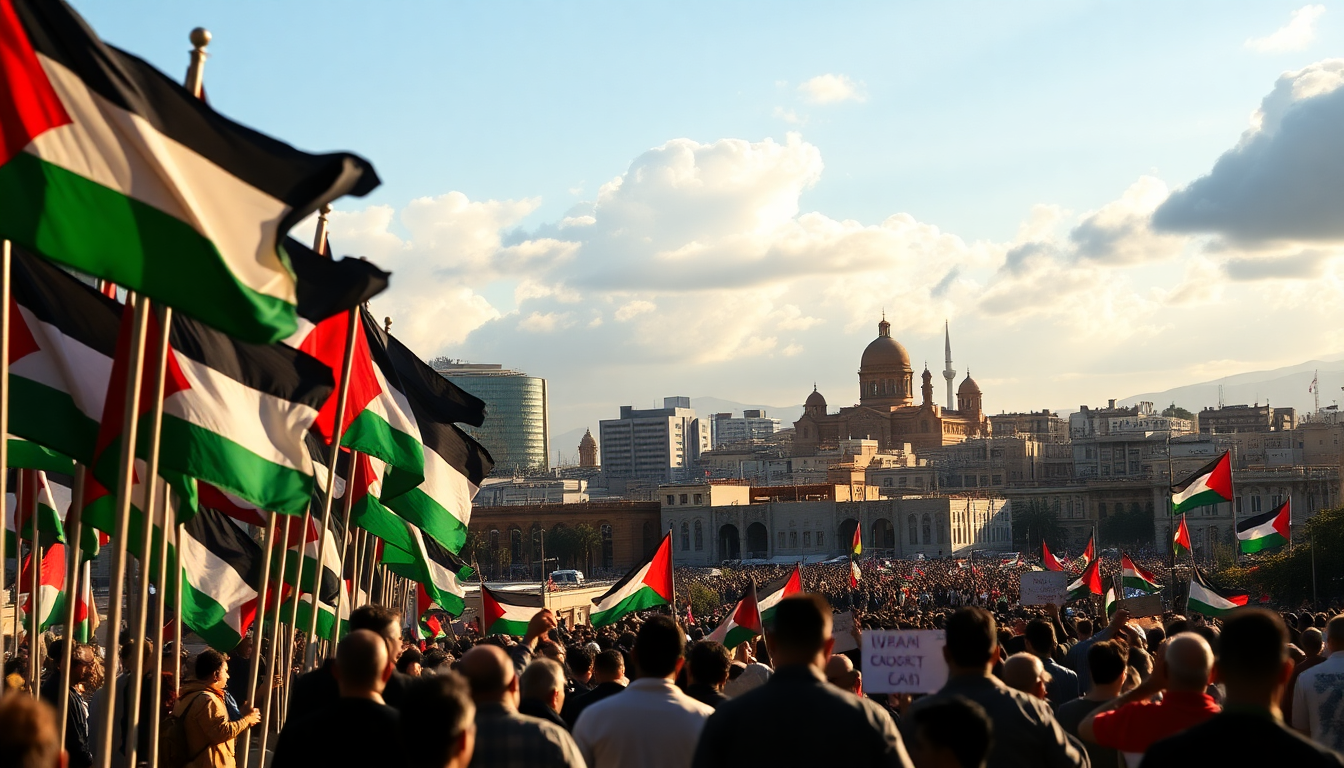Table of Contents
Israeli Prime Minister Benjamin Netanyahu’s recent comments supporting the idea of a “Greater Israel” have ignited outrage across Arab and Muslim nations. A coalition of 31 countries has come together to condemn his statements, interpreting them as a direct threat to Arab national security and a challenge to international law.
This dramatic escalation prompts us to consider: What does this mean for peace in the region and the ongoing struggle for Palestinian statehood?
The Coalition’s Response
In a united front, the coalition of Arab and Islamic nations voiced their strong disapproval of Netanyahu’s remarks during an interview with Israeli i24NEWS.
When asked about his connection to the “Greater Israel” ideology, Netanyahu didn’t hold back, affirming his alignment with it. This vision, popular among ultranationalist groups in Israel, pushes for territorial claims that stretch well beyond current borders, aiming to encompass not just the occupied West Bank and Gaza, but also portions of neighboring countries like Lebanon, Syria, Egypt, and Jordan.
The coalition’s statement marked Netanyahu’s comments as a serious violation of international law, calling it a blatant disregard for the principles that help maintain stable international relations. The repercussions of such rhetoric resonate deeply, threatening not only the sovereignty of Arab nations but also the fragile fabric of regional and international peace.
Settlement Expansion and International Law
Adding fuel to the fire, the coalition has also condemned Israeli Finance Minister Bezalel Smotrich’s announcement about continuing settlement expansion in the occupied West Bank. This move is seen as a direct challenge to international law and the rights of the Palestinian people.
The coalition argues that such initiatives undermine efforts to find a peaceful resolution based on pre-1967 borders, with East Jerusalem serving as the capital of a future Palestinian state.
Smotrich’s plan to approve thousands of new housing units in illegal settlements complicates an already delicate situation.
His claim that this decision effectively “buries the idea of a Palestinian state” has drawn widespread criticism from the international community, which largely supports the right of Palestinians to self-determination. Last September, a resolution passed by the United Nations General Assembly called for an end to Israel’s illegal occupation of Palestinian territories, underscoring that ongoing expansion is both unlawful and detrimental to peace efforts.
Humanitarian Crisis and International Response
The humanitarian crisis in Gaza adds another layer of urgency to this already complex situation. Netanyahu’s government faces backlash for its military operations in the region, which have led to significant loss of life and suffering among civilians. Recent estimates reveal that more than 61,000 people have died, and tens of thousands more have been injured since the conflict began.
As the Israeli government contemplates a full occupation of Gaza City, Netanyahu’s suggestion that Palestinians might consider “leaving” the territory has stirred accusations of ethnic cleansing. Many observers note that such rhetoric recalls past suggestions that have triggered fears of forced displacement among the Palestinian population. The coalition of Arab and Islamic nations has reiterated its condemnation of what they describe as acts of aggression, genocide, and ethnic cleansing by Israel, calling for an immediate ceasefire and unhindered access to humanitarian aid.
Moreover, there’s an urgent call for the international community to step in and pressure Israel to halt its military operations and fully withdraw from occupied territories. The ongoing crisis demands a collective effort to tackle the systemic starvation and humanitarian challenges confronting the Palestinian people. Can we afford to turn a blind eye to the suffering that continues to unfold?





